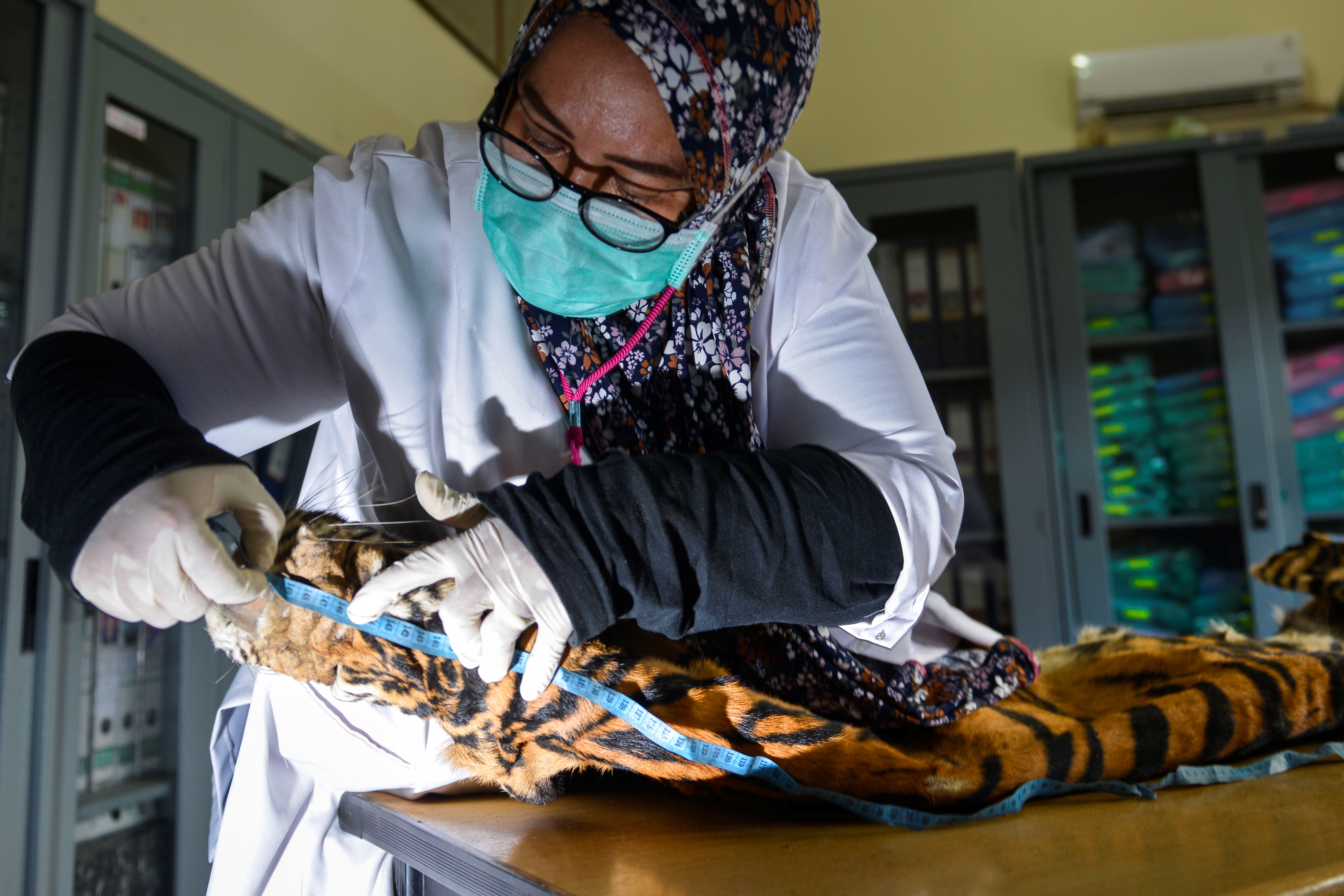More than 2,300 tigers killed and trafficked this century–report

A Bengal tiger rests in water at its enclosure at the Arignar Anna Zoological Park in Chennai on July 24, 2018. (AFP)
GENEVA, Switzerland–More than 2,300 endangered tigers have been killed and illegally trafficked since the turn of the century, according to a report published Tuesday, urging more action to protect the giant cats.
With an average of more than 120 illegally trafficked tigers seized each year — which amounts to over two each week — since year 2000, conservation group Traffic warned there was little sign of respite for the species.
Report author Kanitha Krishnasamy, who heads Traffic’s Southeast Asia operations, said the numbers were deeply concerning.
“It looks like we are losing this fight,” she told AFP.
In 1900, more than 100,000 tigers were estimated to roam the planet. But that fell to a record low of 3,200 globally in 2010.
Article continues after this advertisementSince then, population numbers have inched upwards, but there are still estimated to be fewer than 3,900 tigers left in the wild.
Article continues after this advertisement“This pernicious trafficking, evidenced by the continuously high number of whole skins, whole animals — both dead and alive — and bones is testament to the ongoing demand for Tiger parts,” Krishnasamy said.
“The time for talking is over: words must be turned into action to prevent further Tiger loss,” she said in a statement.
Traffic, which campaigns to protect endangered animals and help governments catch those who trade in their parts, published a new analysis looking at 19-years of tiger seizure data from across the globe.
It found that an estimated total equivalent to 2,359 individual tigers were seized from 2000 to 2018 across 32 countries and territories.
Skins are the single most frequently seized tiger part, with on average 58 whole tiger skins seized each year, the report found, also noting a clear increase in seizures of whole animals, both dead and alive.
‘Undermine conservation efforts’
The study also highlighted the growing role breeding centers play in fuelling the illegal tiger trade, especially in Southeast Asia.
The tiger farm industry often argues the trade in captive animals helps to relieve the pressure on wild felines, but wildlife groups argue it reduces the stigma around buying the animals or their body parts and could create new markets for them.
More than half of tiger seizures in Thailand and a third of those in Vietnam over the past two decades were identified as coming from captive breeding facilities, Traffic said.
“Seizures of tigers from captive facilities continue and serve as a stark reminder that such facilities seriously undermine conservation efforts to safeguard this species and provide opportunities for laundering and other illegal activities,” said senior Traffic crime analyst Ramacandra Wong in the statement.
Tuesday’s report was released as parties to the Convention on International Trade in Endangered Species (CITES) meet in Geneva to evaluate and fine-tune the treaty that manages trade in more than 35,000 species of plants and animals.
Tiger farms are on the agenda, with the report authors calling for CITES to monitor facilities to ensure they are not helping feed the illegal trade chain.
